
North Carolina Vehicular Homicide: What Happens Auto Accident and Murder Charges?
- What is Second Degree Murder?
- What is Involuntary Manslaughter?
- What is Malice?
- How Does Sentencing Work?
The laws surrounding Murder, Manslaughter, and Vehicular Homicide cases in North Carolina are complex and sometimes confusing – Bill Powers
What is the Difference Between Second Degree Murder and Involuntary Manslaughter?
North Carolina General Statutes §14-17 and §14-18 define, at least in part, Murder and Manslaughter in North Carolina.
In order understand the differences, it is important to discuss the distinctions in types and levels of “murder” in North Carolina.
N.C.G.S. Chapter 14-17 starts by defining Murder in the First Degree. Offenses NOT meeting that description are deemed to be Second Degree Murder or some other offense.
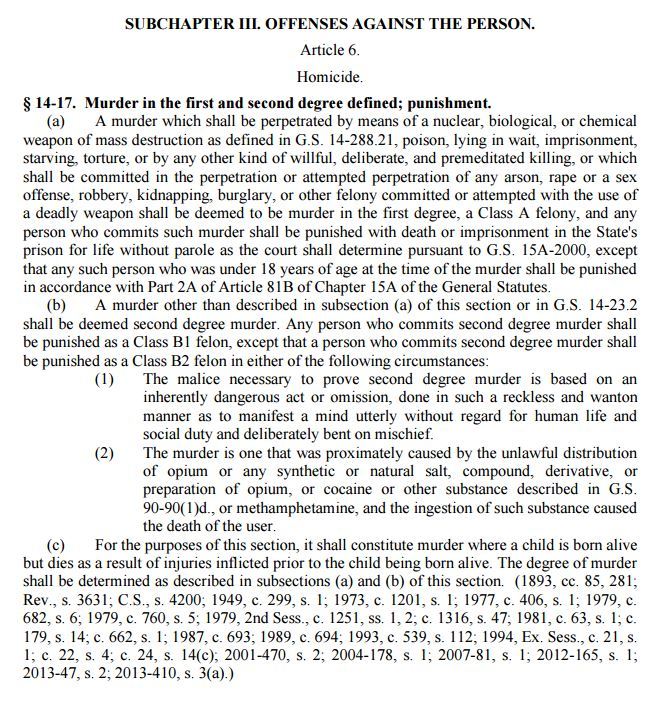
See More: Murder Definition North Carolina 2016
What is Murder?
Murder is often referred to a Common Law offense, although many states have since “codified” or written down the definition of murder in the general statutes.
Blacks Law Dictionary defines murder as:
The unlawful killing of a human being by another with malice aforethought, either express or implied – Blacks Law Dictionary Fifth Edition 1979
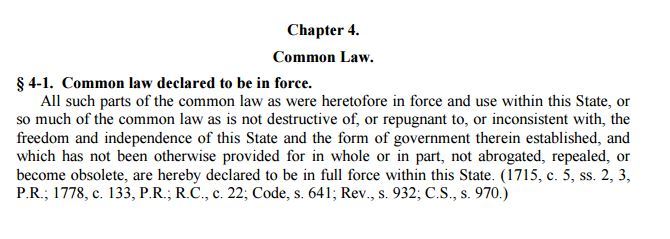
See More: North Carolina Common Law Statutory Reference 2016
Traditional Definition of Murder:
- Unlawful
- Premeditated
- Deliberate
- Killing of a Human Being
- By a Sane Person
- With Intent
- Malice Aforethought
- Without Lawful Excuse
- Without Legal Authority
Second-degree murder is the unlawful killing of a human being with malice but without premeditation and deliberation.
What’s the Common Law?
In simple terms, Common Law is the law based on custom in the community and courts.
It differs from Statutory Law, which tends to refer to laws written in Statutes or Codes by Legislative bodies. While there are differences depending upon the legal system, the country and/or state of origin, an easy way to remember things is:
- Common Law is the law everyone knows and in large measure follows historical trends and Court rulings
- For example, there is little disagreement on the issue that people “know” it is wrong to kill another person without legal justification
- Common Law may be referred to as “Case Law,” which are decisions or opinions issued by the Courts applying the law to a particular fact scenario
- Common Law comes from the traditional authority of Courts to define what law is, in the event there does not exist a written Statute (Certain states, such as North Carolina, recognize both Common Law and Statutory Law).
- Common Law is said to “arise gradually” or in steps
- Common Law is subject to some level of interpretation and revision as time passes
- Statutory Law is enacted by a Legislature or an entity authorized to pass and adopt laws
- Legislative enacted statutes tend to be statements of principle
- Statutory Law sets boundaries
- Statutory Law defines conduct or terms
- Statutory Law seeks to eliminate confusion as to what the law actually is and is not
- Statutory Law intends to establish a “bright line” of conduct to avoid
It is impossible to anticipate each and every potential instance of conduct or fact pattern; but, in writing laws, we attempt to set general precepts and give guidance on acceptable and unacceptable behavior. In the United States, that is part of the social contract of being a citizen and living, hopefully peacefully, with one-another.
We live under a complex and at times confusing system of Justice.
It is by no means perfect, as anything created by the human mind is subject to error. But, I truly believe our form of resolving disputes is still the best ever devised in the history of human affairs – Bill Powers

How Does Common Law Apply in North Carolina?
As indicated above, North Carolina “declares Common Law to be in place.” Indeed, many of our written (statutory) laws utilize some of the same words or wording as developed through the Common Law.
Regarding Murder, the General Assembly defines it with language such as “killing” without actually stating what “killing” is: The Death of another human caused by another human.
Nor does the North Carolina Statutory definition in N.C.G.S. §14-17 of murder specifically discuss issues involving sanity or legal justification or excuse such as “self defense.”
As such, one might ask, “How do we know then what is allowed?” The answer comes in the form of Case Law and Common Law.
North Carolina is a very old state.
Most everyone knows we were one of the first Thirteen Colonies. It is easy to forget that while we were a Colony, the King of England and the English Courts and Parliament set forth and otherwise controlled our laws and what happened here.
It is important to remember, our form of government began with and continues to reflect were we began as subjects of the British Crown – Bill Powers
While we Declared our Independence from the Crown and England, the Founders of our United States borrowed heavily from what they knew, from what they lived, and from what they came to believe as former subjects of the King and the laws of England.

Laws are made for men of ordinary understanding and should, therefore, be construed by the ordinary rules of common sense. Their meaning is not to be sought for in metaphysical subtleties which may make anything mean everything or nothing at pleasure – Thomas Jefferson
In setting forth the laws of our State and country, the Framers of the Constitution(s) (both on a State and National level) necessarily went with what they knew.
Put simply, we did not hit reset and start from point zero.
People like Jefferson, Adams, Franklin, Washington, and Hamilton worked to maintain a system of government, which specifically included a separate and co-equal judiciary.
Even after great thought and attention to detail in setting forth our form of government, there were substantial disputes about the power and authority of the Courts, the President, and the respective Legislative branches of Congress.
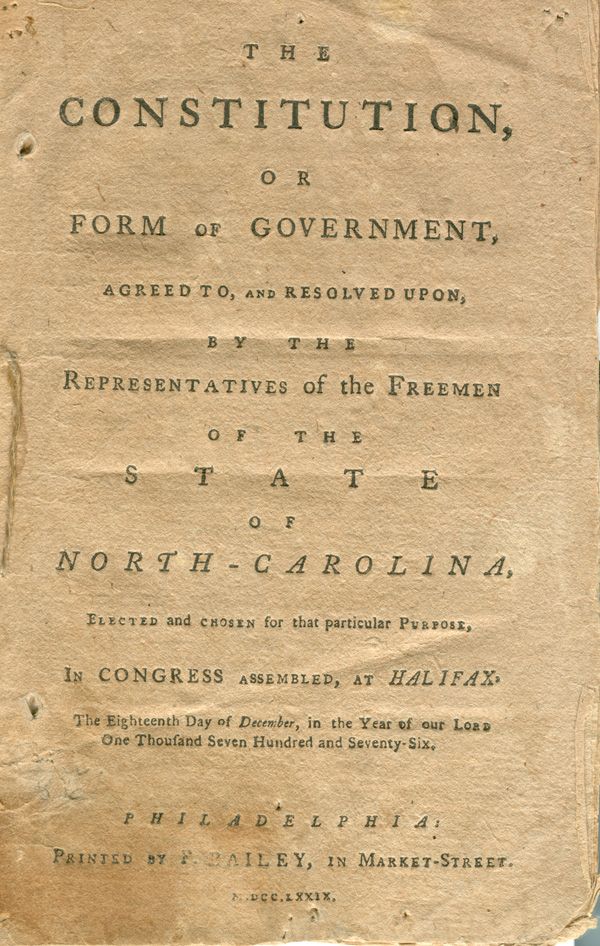
See More: The First Time the Court Declared an Act of Congress Void and against the Constitution
It is said the ‘foremost source of state law’ is the North Carolina Constitution – Bill Powers
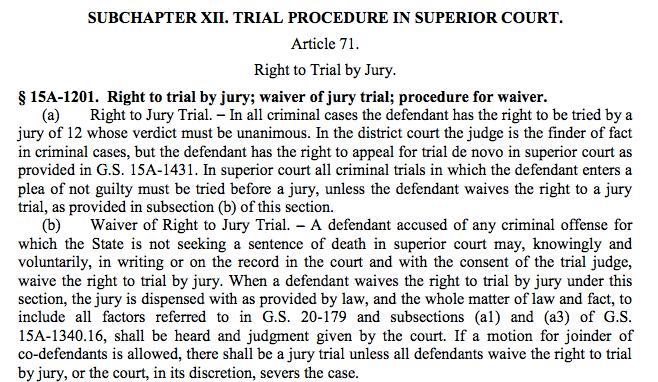
See More: Waiver of Jury Trial in Criminal Cases North Carolina 2016
Who Decides – Murder or Manslaughter?
In our system of justice, the Jury normally decides issues of guilt.*
As a matter of right, a Trial by Jury is afforded in criminal prosecutions.
North Carolina recently amended the State Constitution to allow for the Waiver of the Right to Trial by Jury in certain Superior Court Criminal matters.
See More: What Happens When Convicted of a Felony
One would be remiss in failing to acknowledge the incredible amount of discretion, and therefore power, afforded to the respective elected District Attorneys in North Carolina.
While a Jury, and in some instances a Court, may decide factually whether an accused person committed a criminal offense, it is in large measure up to Prosecutors in North Carolina to decide what matter or matters to pursue.
See More: Grand Jury Information in North Carolina
The State of North Carolina, as represented by the Office of the Districts Attorney, presents matters for Indictment before a Grand Jury.
Grand Juries similarly possess a fair amount of discretion; yet, as a practical matter, the District Attorney holds the authority to choose what matters to prosecute, what pleas to offer, and what matters to take to trial.
Therefore, prior to any verdict by a Jury, the State has made a decision whether to pursue (there are exceptions), or “prosecute” a matter in the General Court of Justice in North Carolina.
See More: Prosecutorial Authority and Scheduling of Matters in North Carolina
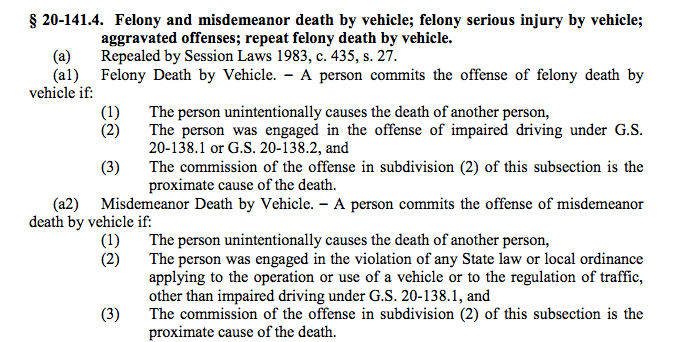
What is Death by Vehicle in North Carolina?
- Person Causes Death
- UN-Intentionally
- While Impaired Driving under N.C.G.S. §20-138.1 or N.C.G.S. §20-138.2
- The Impaired Driving is the PROXIMATE CUASE of the Death
What is Required After an Accident?
This is an extremely complicated and at times confusing area of law. One should remember they have a right to remain silent – Bill Powers
How is it that one is not required to provide evidence against himself or herself, yet is required under certain circumstances to provide information that very much may assist the State, even indirectly, in the prosecution of a matter?
For example, N.C.G.S. 20-166.1 reads as follows:
§ 20-166.1. Reports and investigations required in event of accident.
(a) Notice of Accident. – The driver of a vehicle involved in a reportable accident must immediately, by the quickest means of communication, notify the appropriate law enforcement agency of the accident. If the accident occurred in a city or town, the appropriate agency is the police department of the city or town. If the accident occurred outside a city or town, the appropriate agency is the State Highway Patrol or the sheriff’s office or other qualified rural police of the county where the accident occurred.
At the same time, later within the same statute the Legislature clarifies, to some extent that:
(i) Effect of Report. – A report of an accident made under this section by a person who is not a law enforcement officer is without prejudice, is for the use of the Division, and shall not be used in any manner as evidence, or for any other purpose in any trial, civil or criminal, arising out of the accident.
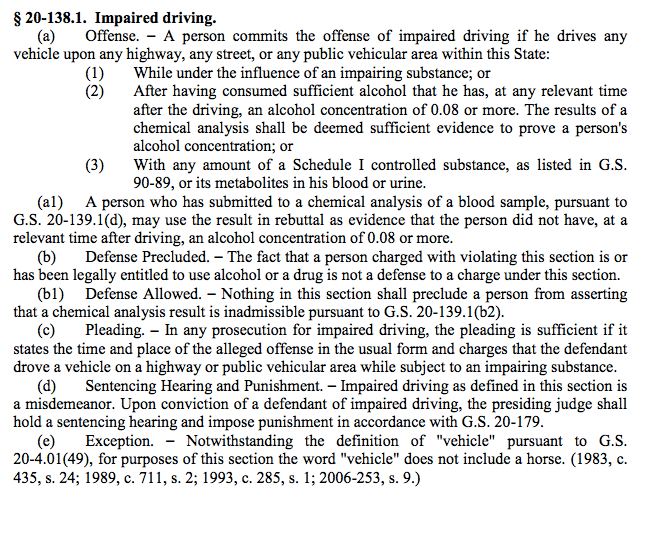
In proving impaired driving in North Carolina, the State must present evidence that the accused*:
- Drove or Operated
- Motor Vehicle
- On Public Streets or Highways
- While Subject to an Impairing Substance
*The elements of Driving While Impaired involve a series of factors and are NOT strictly limited to the bullet-points above. Rather, the issue of Driving or Operating a motor vehicle are being described to explain the over-all point of the “duty” of the “driver” to report an accident under 20-166.1.
Reporting an accident, immediately, in many Impaired Driving scenarios, could result in providing information and evidence to the State.
If you have questions regarding the laws of the State of North Carolina, please speak with Legal Counsel, experienced handling Criminal, Traffic, and DWI Impaired Driving cases without delay.
The attorneys at Powers Law Firm PA offer a free, confidential initial consultation.
See More: Felony Misdemeanor Death by Vehicle 2016
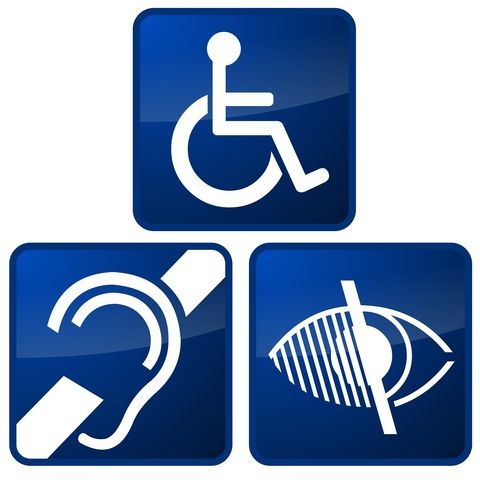
Modified Transcript of “What Happens Auto Accident and Murder Charges” for the Hearing Impaired
Hey, this is Bill Powers and I’m just continuing the series of answering general questions
posted by people online. These are not clients. We want to point you in the right
direction. There are instances where people may want to call and get a free confidential
consultation. First question is a family member has been charged with what appears to
be a murder or manslaughter involving a vehicle, some sort of fatality. What should they
do? Who should they talk to? How long will this take?
Good question, often times when people are arrested for vehicular homicide or other
fatalities that involve a motor vehicle in North Carolina … As I said, they’re arrested,
they’re in jail. They’re serious charges. In North Carolina you can be charged with
murder for a certain type of vehicular homicides. Manslaughter is normally the
unintentional death of another. In North Carolina we have voluntary and involuntary.
With traffic and vehicular homicide cases we tend to see them on either end of the
spectrum, meaning [inaudible 00:01:03] murder or involuntary. It’s complicated.
We also have felony death by motor vehicle. We have misdemeanor death by motor
vehicle and then there are also cases involving very serious felony assault type of
charges. I would caution anybody that’s beginning this process to realize that you have a
right to remain silent. You have a right not to provide information against yourself.
While you may have some duty to corporate in an investigation of law enforcement.
You may want to exercise your, what we refer to as Miranda Rights. If this is a family
member in jail, one of the more important things to realize is that jail telephone calls
that come through the system are often times recorded. If you’re on the front end of
this, if you’ve just found out that either you or a loved one could be charged, not that
you had been charged, but could be charged, whether it’s us or someone else, please
pick up the phone. Call an experienced attorney, call an attorney in North Carolina that
understands these types of cases or more than willing to give you a free consultation.
Realize again that it’s confidential.
It is a long process, it’s a complicated process. These felony cases do not generally
develop quickly. The best answer is, in my mind, is contact an experienced attorney
right away. Get into that attorney’s office if that’s possible. If you’re a family member,
retain an attorney if you have the ability to do so. If you don’t and your loved one’s in
jail ask for the appointment of council. Exercise your right to remain silent and ask for
appointed council. There will be some hearing on whether or not your or your loved one
is deemed indigent. Meaning that you don’t have the financial resources to pay for
council. Great question. It happens more often than you think. I really,
think. I really hope if you or someone you love is faced with this that you get on the horn right away and get some experienced legal advice.
Great question though.
Bill Powers
 Carolina Law Blog
Carolina Law Blog